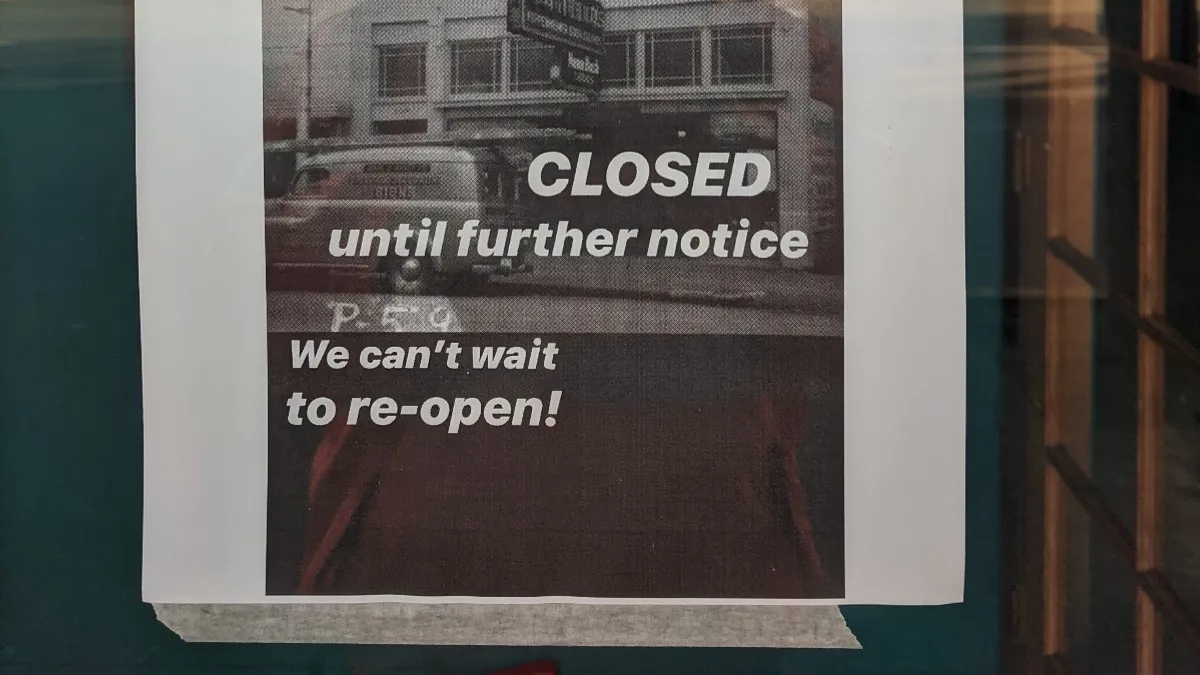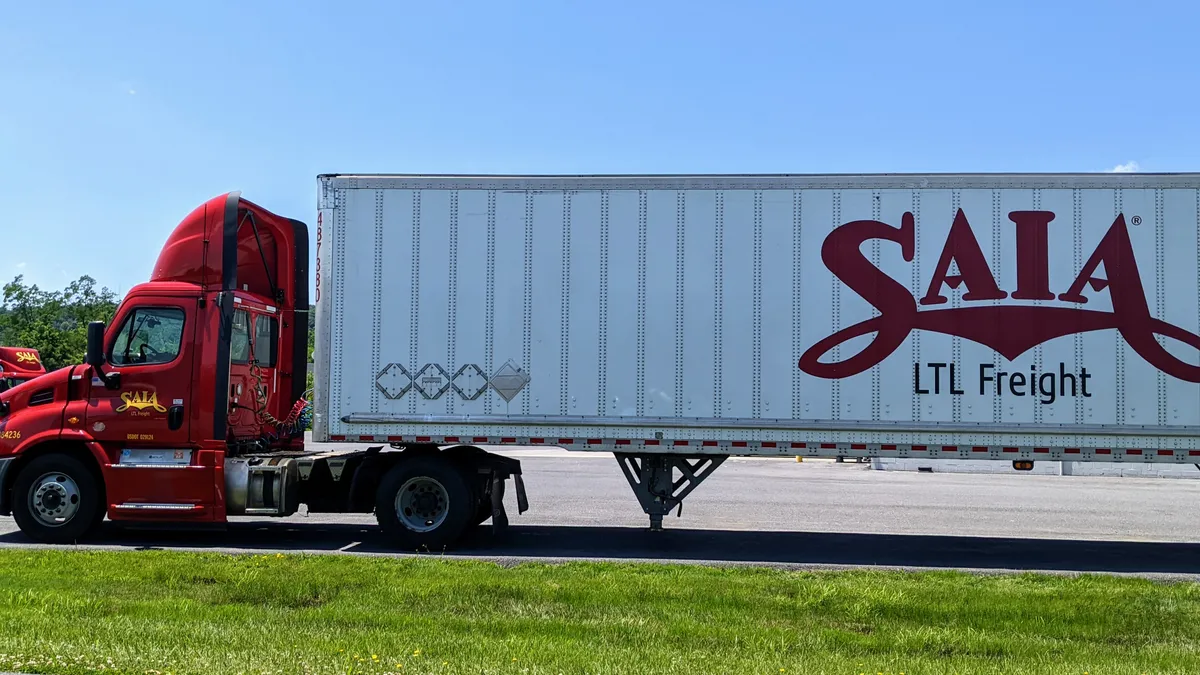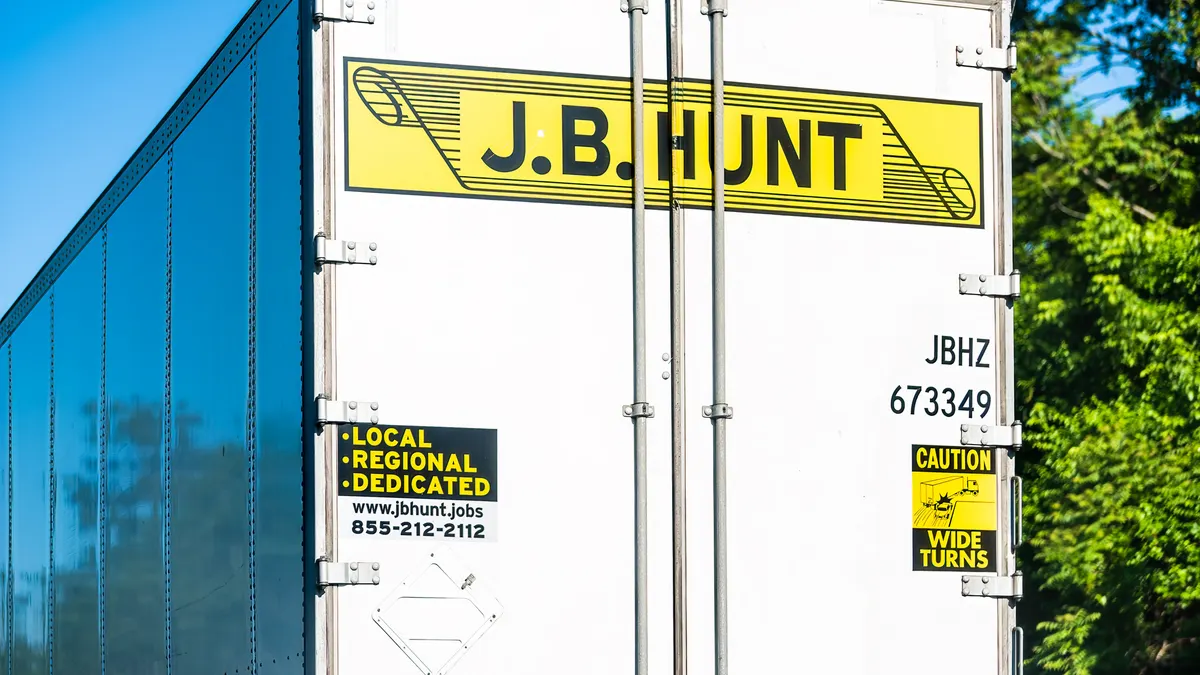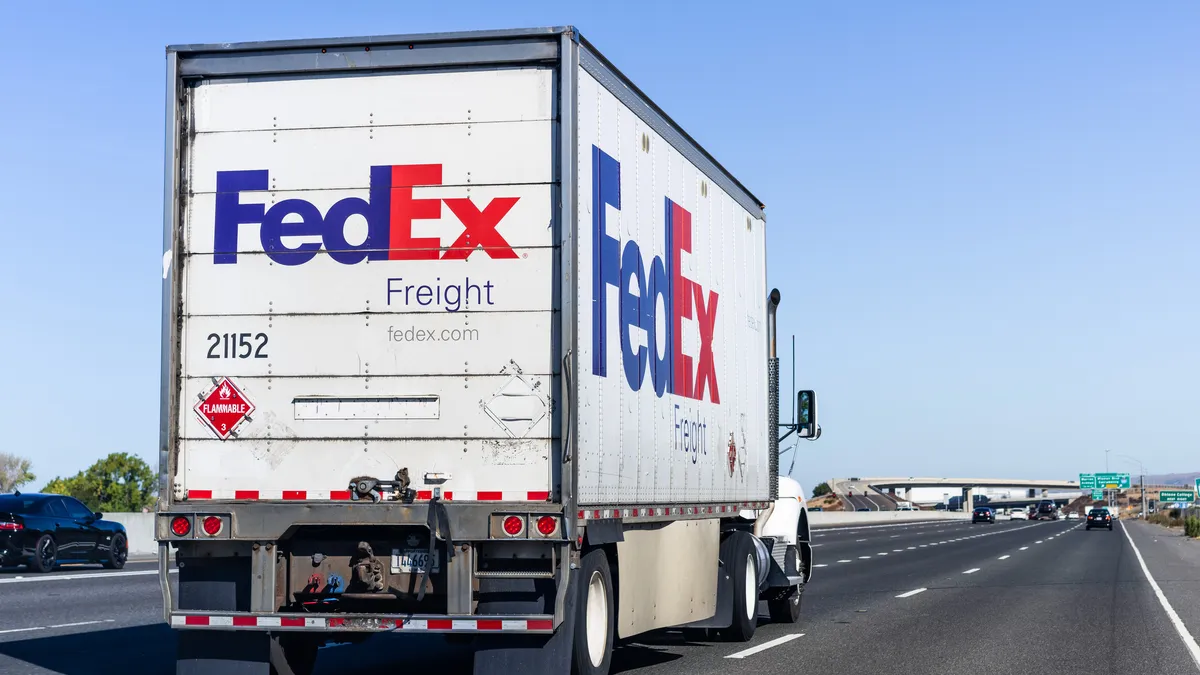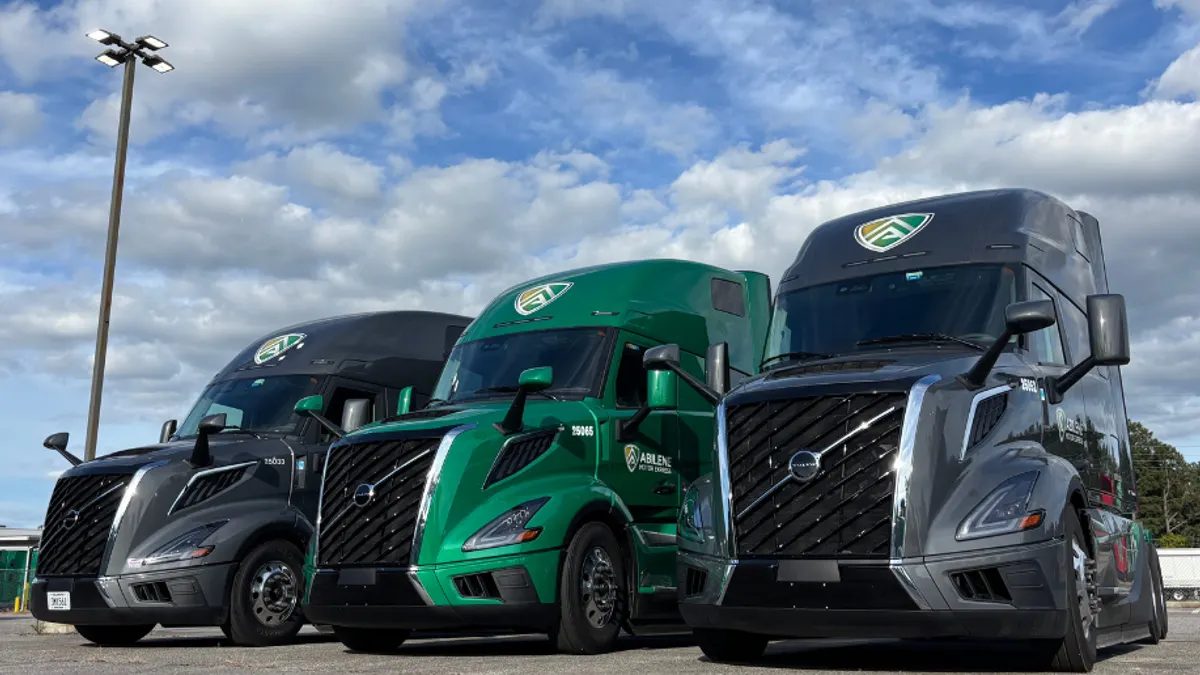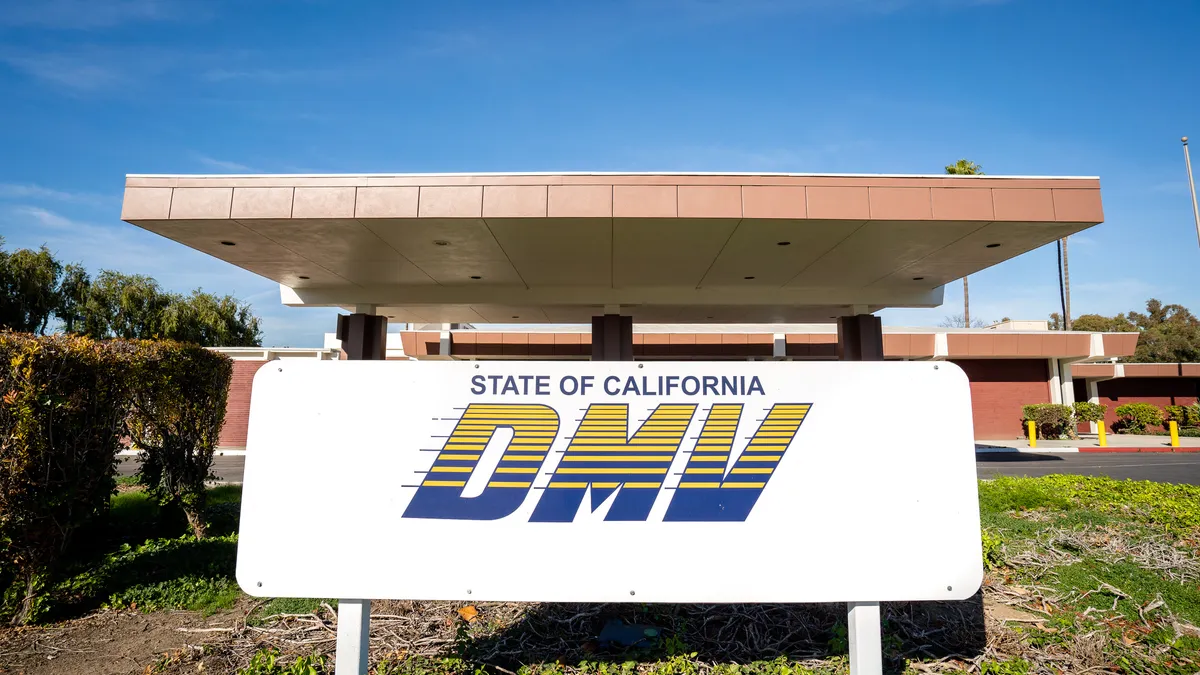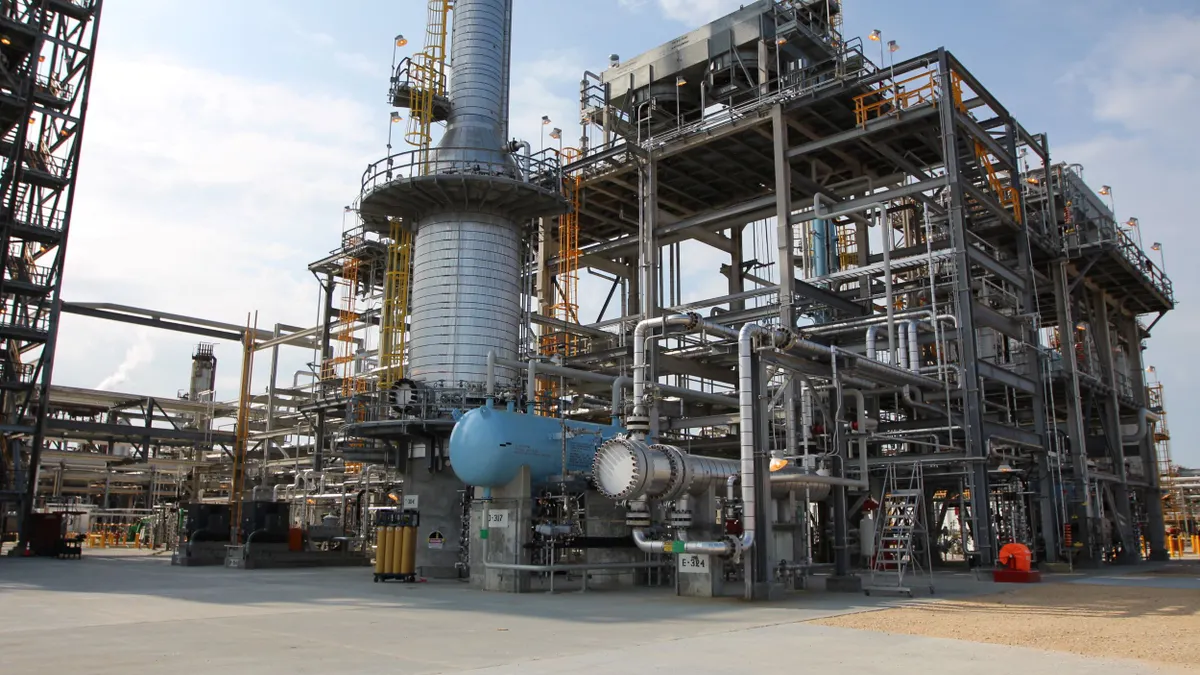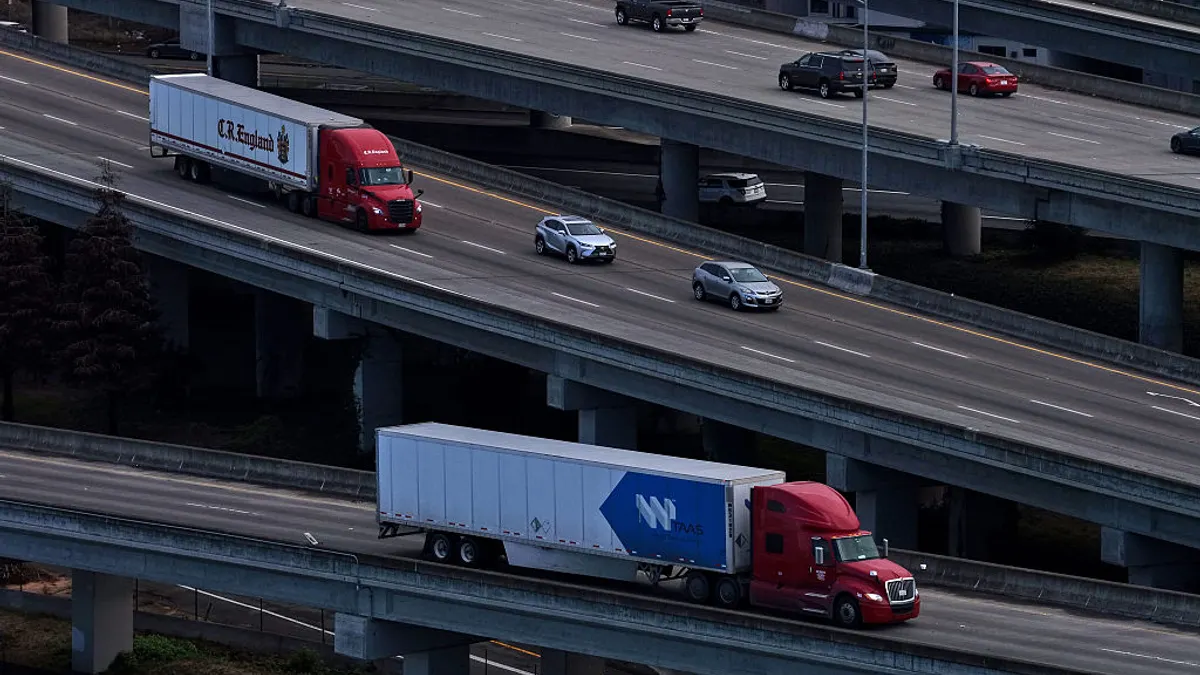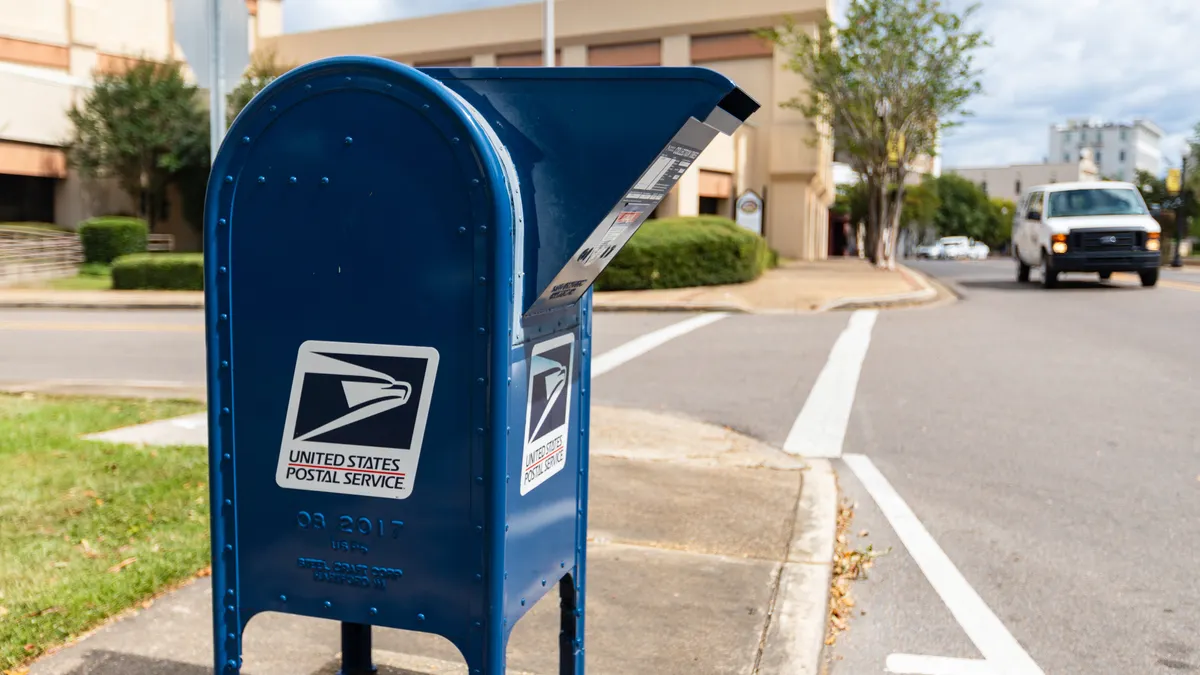If there is a second round of state-forced shutdowns in response to coronavirus and the resulting illness, COVID-19, fleet executive Royal Jones doesn't have a second-phase plan for his company, Mesilla Valley Transportation (MVT). What he has is concern that state governments will order businesses to close again.
"If they did it, it would probably put us out of business," said Jones, the CEO of MVT. "This country cannot afford another shutdown."
The for-hire carrier, based in Las Cruces, New Mexico, lost a significant part of its business in March and April as the shutdowns took hold. Jones told Transport Dive that the carrier does much business with automotive plants and other industries, which were closed temporarily in March and April in response to COVID-19.
The company's contracts with essential businesses, such as Walmart, Lowe's, Home Depot and Budweiser, helped the fleet stretch into May, when many businesses started to reopen.
In that time, Jones said, he did everything to make his workplaces safe. Workers were spaced six feet apart. Conference rooms were turned into offices to give more space to desk-bound workers.
On the safety front, Jones thinks he has done everything he can. But he is not sure his privately held carrier can endure another shutdown and idle trucks. His belief augurs poorly for fleets running on the razor's edge of profitability, or for fleets heavily saddled with existing debt.
"I can lose money for a long time, but I cannot not run."

Royal Jones
CEO, Mesilla Valley Transportation
Jones said some advisers tell him, if a new regional or national shutdown happens, to just keep his trucks parked. But he scoffs at the suggestion, noting these advisers usually talk to publicly held companies. Privately held fleets need to keep moving, he said.
"I can lose money for a long time, but I cannot not run," said Jones. "It killed us in April and May."
He said the virus is known now and is not the extreme threat the nation initially thought it was. "I truly believe working America won't put up with another shutdown," Jones said.
Quite unlike March
Jones' assessment shows how weary some fleet executives are and how eager they are to fully get back to work. Some states were criticized for reopening too fast.
As cases went up in late June, Gov. Greg Abbott decided on Friday to shut down bars and forced restaurants to limit occupancy to 50%, according to the Texas Tribune. In Palm Beach County, Florida, the county commission voted unanimously to require masks be worn in public. That action preceded sharper action in Florida on Friday, when the state Department of Business and Professional Regulation temporarily banned alcohol consumption at bars.
But Jones' assessment also indicates fleets and other freight businesses have done the reading on COVID-19 and checked off as much as they could from the to-do list. Fleets have deployed sanitizer, given masks to drivers and terminal workers, and told employees to keep apart.
It is quite unlike March, when the positive coronavirus case numbers started to take off. California issued the first statewide, stay-at-home order on March 19. And while the shutdowns of schools, sporting events and businesses hurt some fleets, the panic-buying of March stimulated trucking rates until the end of the month. Through March and April, fleet managers scrambled to reorganize and sanitize their workplaces, while communicating with drivers on best practices.
The preparation and measures that fleets took earlier in the year shows the trucking business has girded itself for the "new normal" of virus mitigation. Where fleets stand today is far from where the industry stood as COVID-19 was first reported the United States in February, according to John Esparza, president and CEO of the Texas Trucking Association (TTA). It means most fleets could likely withstand the logistical challenges of a new coronavirus challenge.
"We are in a better position now than we were back on March 1," Esparza told Transport Dive. "We are ready if something like that were to occur."
"[COVID-19] has moved us forward about 10 years in about two months."

John Esparza
CEO, Texas Trucking Association
Before coronavirus, the TTA was moving toward a great deal of work from home, with many files moved into the cloud, Esparza said. Many fleets were also readying remote work and moving key files to the cloud. And then the pandemic arrived.
"[COVID-19] has moved us forward about 10 years in about two months," said Esparza.
It hasn't been entirely easy for Texas. The state is in the middle of new outbreaks, and Abbott on Thursday also postponed elective surgeries in several large Texas counties to free up bed space, should it be needed. The state's tanker business was also slammed by a drop in oil prices in April.
Esparza said understands what Texas has to do, "threading the needle between lives and livelihoods."
Reinstating old measures
Mike Riccio, chief marketing officer of Leonard's Express, told Transport Dive that the fleet, based in Rochester, New York, provided masks and sanitizer to drivers early in the crisis, and as it became clear in mid-March that the Empire State would be one of the hardest hit.
The unique challenge of coronavirus has meant plenty of communication, he said. The company sends out at least one virus-related update a week to drivers. Riccio said he believes that is probably standard for fleets.
The weekly communication is sent via telematics and email. It covers what managers are hearing about COVID-19 and "hot spots," what management is doing internally about the coronavirus, and what changes are coming in the future. Riccio said management was concerned the messages would eventually become "white noise," but drivers responded they liked the updates.
"Because of the first wave, not only are we prepared to react quicker, I think a lot of our customers are as well."

Mike Riccio
Chief Marketing Officer, Leonard's Express
Two-thirds of employees are already back in the office. If a new outbreak happens, or New York issues new shutdowns, Leonard's Express will have to assess how to react.
"Because of the first wave, not only are we prepared to react quicker, I think a lot of our customers are as well," said Riccio.

